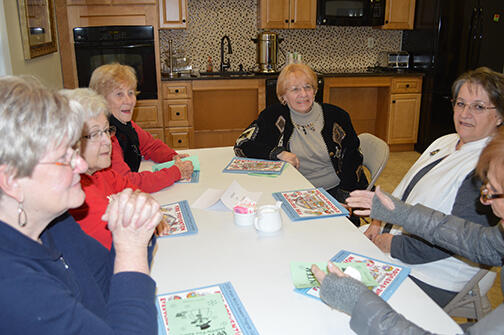Seniors are more likely to die in fires than those of other ages. DFS offers materials about keeping seniors safe at home and about safety risks specific to seniors including smoking, cooking, electrical fires, and planning for emergencies.
Senior Fire Safety
The fire and injury risks we face change as we age and it is important to adapt our homes so we can stay independent and safe. A fall, a burn, or a fire can be devastating. As our skin ages, it thins and burns can be more damage more quickly.
Older homeowners may need help replacing batteries in smoke and CO alarms at least once a year, and replacing smoke alarms entirely every 10. Many fire departments can help through their Senior SAFE Programs.
Electrical systems need a check-up every 10 years, and furnaces and chimneys need a tune-up every year. Fuel assistance programs can help homeowners with important regular maintenance.
People facing mobility issues, may need to revise their home escape plan to accommodate that, by perhaps moving a bedroom to the first floor. People with hearing issues may want to get a bed shaker connected to their smoke alarm.
Additional Resources
Video: Dear Grandma PSA on Smoke Alarm Safety - English - 30 seconds
Skip this video Dear Grandma PSA on Smoke Alarm Safety - English - 30 seconds.Cooking
Cooking is the leading cause of fire injuries to people over 65. Follow these tips to stay safe while cooking:
- Wear short or tight-fitting sleeves while cooking as loose sleeves easily catch fire.
- Stand by your cooking and never leave it unattended.
- Put a lid on the stove top to put a fire out.
- If your clothes catch on fire, lower yourself to the ground, cover your eyes and roll to put out the flames. Don't be afraid to "Stop, Drop, and Roll", it could save your life.
- You can use a dish towel, bathrobe or coat to also put out the flames on yourself or someone else.
Learn more about cooking fire safety
Electrical Fires
Follow these safe practices to prevent electrical fires:
- Don't overload outlets or power strips
- Repair or discard anything with a frayed wire
- Use one appliance per outlet, especially if it's a heat generating appliance
- Don't run electrical cords under rugs or let them get pinched by furniture
- Extension cords are for temporary use only and are not designed for long-term use
- Space heaters need at least 3 feet of space from anything that can burn
- Have a licensed electrician inspect your electrical system every 10 years
Learn more about electrical fire safety.
Smoking
Follow these safe practices to prevent smoking fires:
- Smoke outdoors
- Use large and sturdy ashtrays or a can filled with sand to put out cigarettes
- Be sure that matches and cigarettes are fully extinguished when throwing them away
- Never extinguish cigarettes in potted plants or mulch
- If you're drowsy or falling asleep, put out your cigarette
- Never smoke while using oxygen or near an oxygen source
Learn more about using home oxygen safely.
Additional Resources
Planning for Emergencies
- Have a plan to get out of the house in 3 minutes or less
- Keep eyeglasses, canes, walkers, and hearing instruments next to the bed or wherever you sleep at night
- Make sure that all pathways are clear of clutter
- Install night lights throughout the house to prevent falls
- Make sure that house numbers are clearly visible from the street so emergency responder can find your house
- Get a File of Life form from your senior center or fire department. Fill it out and keep it on your refrigerator. The File records your medications. Emergency responders know to look for this record when they come to assist you.
